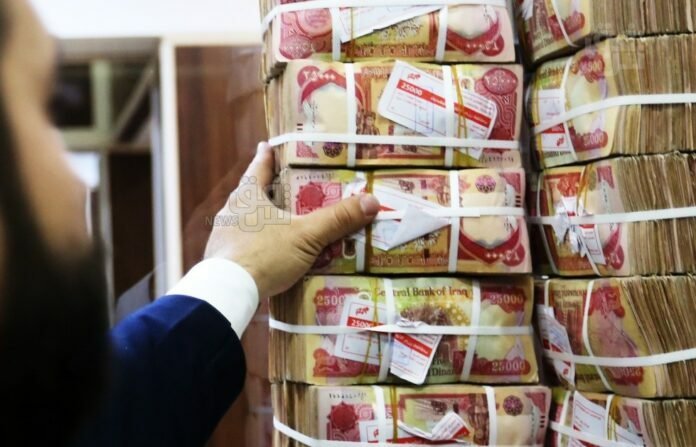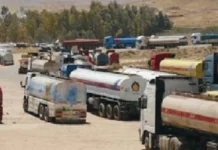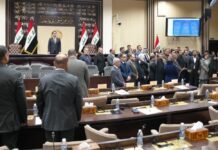The Ministry of Finance announced on Sunday that Iraq’s financial revenues in the federal budget have exceeded 65 trillion dinars during the first 7 months of the year. The ministry also confirmed that the oil contribution to the budget has increased to 95%. However, an economist predicts that non-oil revenues are unlikely to improve.
The agency referred to the Ministry of Finance’s data and tables released in September, which display the accounts from January to July for the current fiscal year. According to these figures, oil remains the primary source of revenue for Iraq’s general budget, accounting for 95%. This highlights that Iraq’s general budget is largely dependent on its rentier economy.
The financial report shows that the total revenue until last July was 65 trillion, 195 billion, 3 million, 735 thousand, and 974 dinars. This amount excludes transfer revenues which amounted to 1 trillion, 995 billion, 73 million, and 713 thousand dinars. The total expenditure, including advances, amounted to 52 trillion, 916 billion, 562 million, and 761 thousand dinars.
The financial tables show that oil revenues make up 95% of the general budget, amounting to 62,259,118,923,534 dinars. Non-oil revenues, on the other hand, only amount to 2,935,884,812,439 dinars.
In an interview with Shafaq News Agency, Economist Muhammad al-Hassani expressed his view that the non-oil revenues in Iraq will not improve or rise until there is a boost in domestic industrial and agricultural production. He further pointed out that the Iraqi economy is heavily dependent on taxes and customs for non-oil revenues, making it a rentier economy.
He highlighted that the Iraqi governments failed to channel the excess oil revenues, which resulted from the increase in oil prices, towards the development of the industrial and agricultural sectors. Instead, they relied on imports to meet the local needs, causing Iraq to become dependent on neighboring countries.
The Advisor for Financial Affairs to the Prime Minister, Mazhar Muhammad Salih, stated in an interview with an agency in March 2021 that the Iraqi economy’s rentier nature is a result of wars, economic blockades, and current political conflicts. These factors have led to the dispersion of economic resources and continue to hinder the country’s economic growth.
Iraq’s heavy dependence on oil as the primary source of revenue for the government budget exposes the country to global crises that can affect oil prices. Consequently, Iraq has to borrow to cover the budget deficit, which highlights the inability of the state to manage its finances effectively and to find alternative sources of funding. This situation calls for a more diversified economy to reduce the country’s vulnerability to fluctuations in oil prices and increase its financial resilience.





